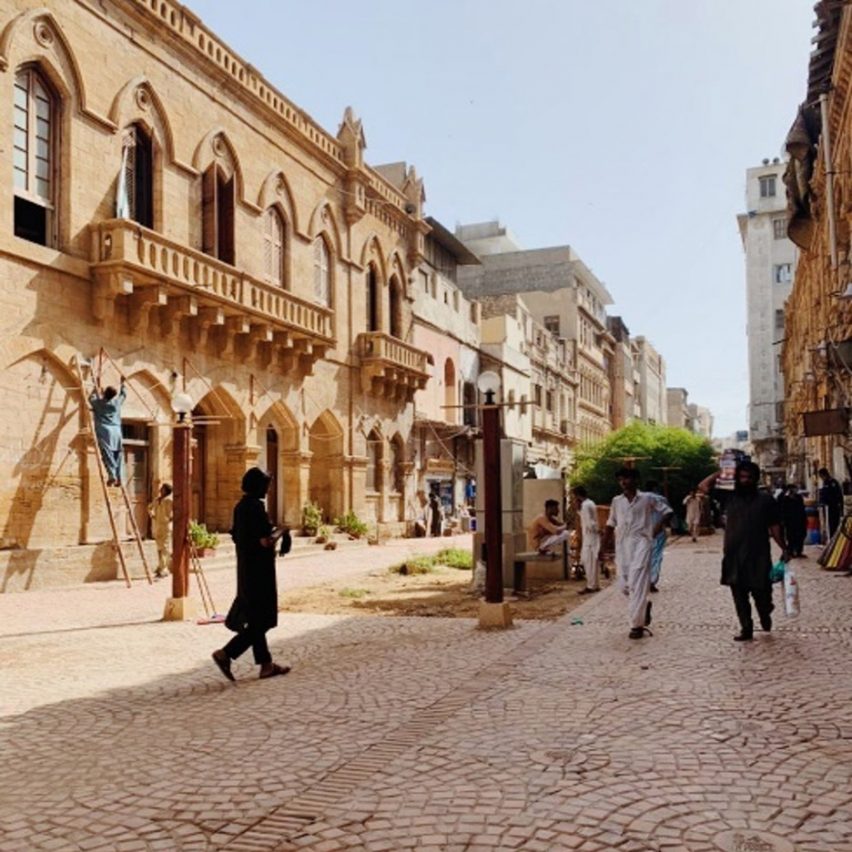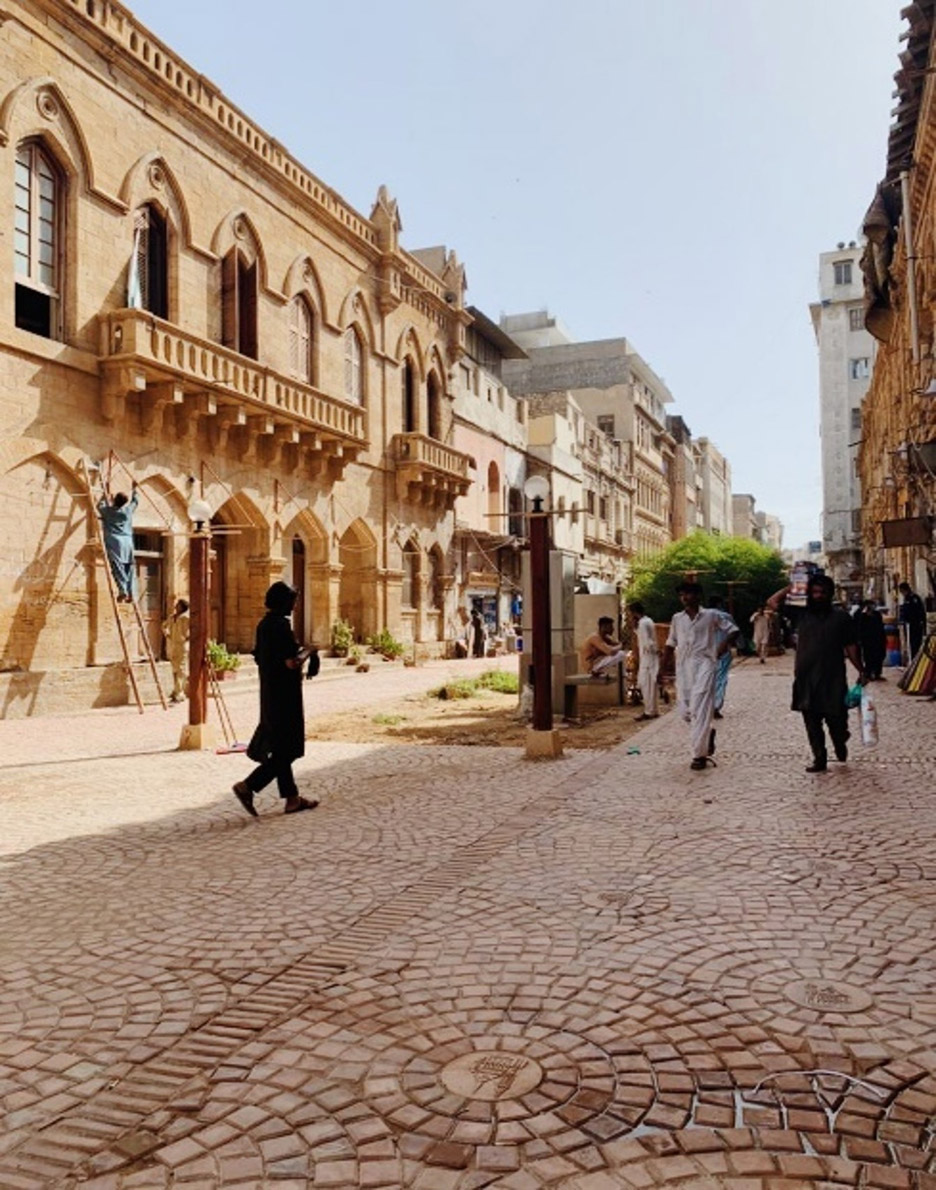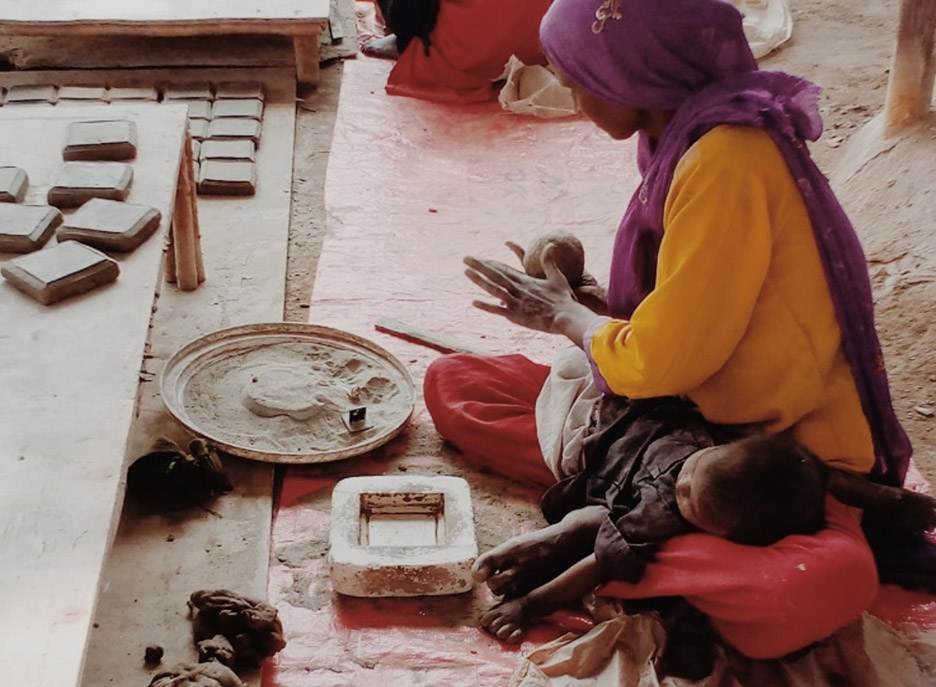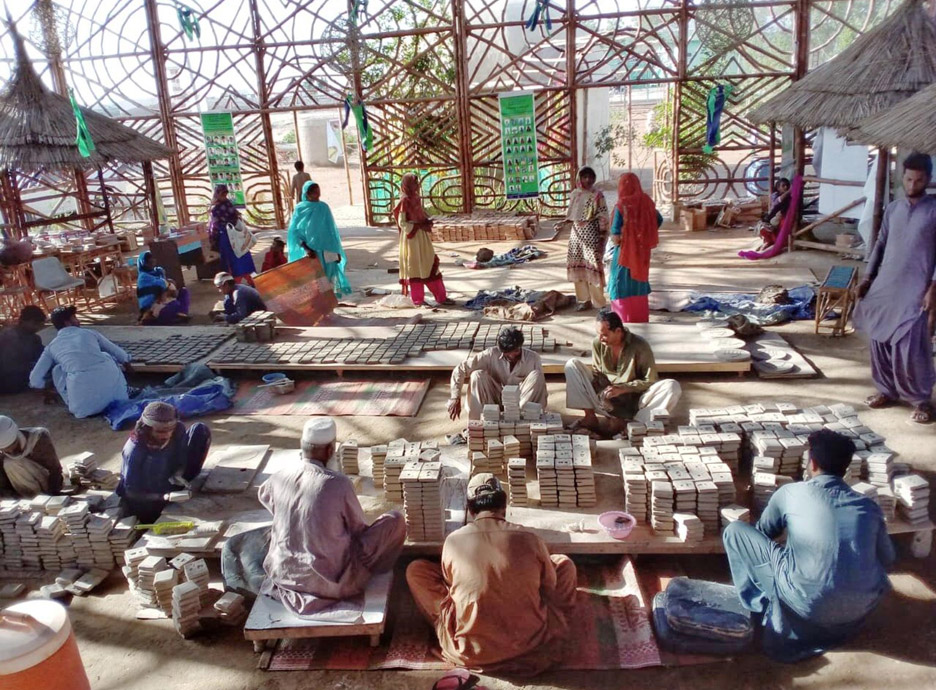Yasmeen Lari works with impoverished villagers to re-pave Karachi's old town
Encrypting your link and protect the link from viruses, malware, thief, etc! Made your link safe to visit.

Architect Yasmeen Lari and Heritage Foundation of Pakistan have worked with disadvantaged communities to craft terracotta tiling for a pedestrianised street in the historic heart of Karachi.
The terracotta tiles appear along Rahguzar Walking Street, an "eco-enclave", which sits close to Denso Hall library in Karachi's old town.
The project is being published as part of Lari's contribution to the Dezeen 15 festival, alongside a manifesto she has written that calls for a new form of social architecture that benefits disadvantaged people. Lari will speak about her manifesto and her work in a live interview with Dezeen editor-in-chief Marcus Fairs.
Heritage Foundation of Pakistan, which was co-founded by Lari, has been working on conserving the 19th-century Denso Hall building and its surrounding area since 2010, in collaboration with Karachi Electric Supply Company and the city government.

Each tile was made and sold by people hailing from a cluster of deprived villages near the city of Thatta, a couple of hours drive east of Karachi. Many of them previously lived in basic shelters and relied on resources that were donated by visitors or staff from Makli Necropolis, a huge UNESCO-listed cemetery located nearby.
However, before initiating the tile-making scheme, the Heritage Foundation of Pakistan and Lari set about improving the villages' living conditions, helping them erect their own zero-carbon homes from non-engineered prefabricated parts.
Support was also provided in constructing toilets, installing manual water pumps, and creating earthen cooking stoves called chulahs.
Lari has built thousands of eco-conscious dwellings like these since 2005, as part of her Barefoot Social Architecture programme. It seeks to provide impoverished groups in Pakistan's Sindh province with affordable housing, sanitation, food and water solutions that don't come at a cost to the environment.

After work on the village homes was complete, over 100 residents were given two months of tile-making training at Thatta's Zero Carbon Cultural Centre, which was set up by Lari.
"It starts with cleaning the clay and removing all impurities through a series of screenings," explained Lari of the lengthy production process. "The clay goes through a laborious process of kneading, balls are prepared, and then pressed into Plaster of Paris moulds by women artisans."
"After they're taken out the moulds, they are cleaned with fine sandpaper," she continued. "They are stacked and left to dry in the sun – once dried they are closely packed in a traditional field kiln made with sawdust and straw and fired for 24 hours."
"The second firing is in a wood kiln for another 24 hours; after cooling the tiles are removed and packed in boxes for transit," she added.

The hope is the villagers will continue making and selling tiles in order to make a profitable livelihood, eventually becoming what Lari has monikered "barefoot entrepreneurs" – the architect said those involved with this particular scheme have increased their original incomes five times over.
Yasmeen Lari was the first woman to qualify as an architect in Pakistan. She ran her own practice up until the year 2000 when she pivoted to focus on more socially conscious projects.
Lari is one of 15 creatives presenting a manifesto for a better world at Dezeen 15, a digital festival celebrating Dezeen's 15th birthday. Others participating include Winy Maas, Es Devlin and Neri Oxman. Read Lari's manifesto here and see details of all the participants here.
The post Yasmeen Lari works with impoverished villagers to re-pave Karachi's old town appeared first on Dezeen.





0 Response to "Yasmeen Lari works with impoverished villagers to re-pave Karachi's old town"
Post a Comment